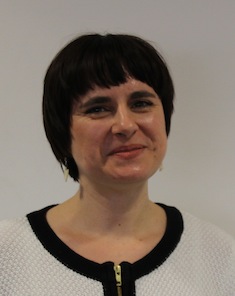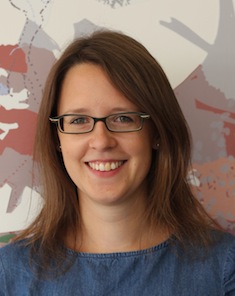Research Integrity and Peer Review: the Editors’ wish list
09/05/2016How can the journal Research Integrity and Peer Review advance research and publication? Daniel Shanahan (BioMed Central Associate Publisher) asked the Editors-in-Chief for their thoughts on what the challenges are, what needs to be changed, and what they’d like to see achieved in the field.
What links ‘research and publication ethics’, ‘research reporting’ and ‘peer review’ in the journal’s scope?
 Iveta Simera (IS): Activities covered by all these topics are an integral part of the research process. They impact each other and together they considerably influence the reliability and usability of published research.
Iveta Simera (IS): Activities covered by all these topics are an integral part of the research process. They impact each other and together they considerably influence the reliability and usability of published research.
Research Integrity and Peer Review aims to provide a platform for discussing key issues and potential solutions, ideally based on sound research, across all areas of research to support wide exchange of information and effective learning.
 Maria Kowalczuk (MK): Each of these areas directly influences the other two in many ways. Peer review has its own ethical issues, such as confidentiality or competing interests; in turn, appropriate reporting and thorough peer review may help to uncover cases of unethical research.
Maria Kowalczuk (MK): Each of these areas directly influences the other two in many ways. Peer review has its own ethical issues, such as confidentiality or competing interests; in turn, appropriate reporting and thorough peer review may help to uncover cases of unethical research.
A constructive solution in one area will positively influence the other areas, for example greater accuracy and transparency in reporting of research may help peer reviewers and editors to assess the ethical aspects of the study and ensure that only ethical research is published and any questions are investigated.
What are the issues surrounding research integrity and peer review?
 Stephanie Harriman (SH): Scientific publishing is currently seeing a rise in retractions and a corresponding loss of confidence in the published literature. We need to better understand the underlying causes of this in order to develop strategies that could be implemented by various stakeholders at different stages in the research and publication process.
Stephanie Harriman (SH): Scientific publishing is currently seeing a rise in retractions and a corresponding loss of confidence in the published literature. We need to better understand the underlying causes of this in order to develop strategies that could be implemented by various stakeholders at different stages in the research and publication process.
MK: One of the recurring questions is who should be responsible for research integrity. Should we leave it to the researchers themselves, or should institutions be more proactive in teaching and policing the responsible conduct of research?
Is it the funders’ responsibility to make sure that the research they fund is ethical and all the results are appropriately reported, or is it the role of scientific journals to ensure that any problems are uncovered and fixed during the process of peer review?
The answer probably is that we should all work together, but implementing it in practice encounters many challenges. It is not clear which interventions aiming at improving ethical behavior are the most successful and how this can be measured.
Also it is not clear which is more harmful – the most extreme forms of misconduct, usually defined as data fabrication, falsification or plagiarism (which fortunately seem to be quite rare), or sloppy science and questionable research practices that are worryingly far more common.
How can a more complete evidence-base for research integrity and peer review advance research and publication?
 Elizabeth Wager (EW): A lot of publishing and reporting practices are based on traditions, which have never been rigorously tested. Researchers often harbour strong convictions about these issues, such as the pros and cons of anonymous or signed peer review, or whether authors’ identities should be revealed to peer reviewers, yet when these systems have been properly tested in randomized trials, the results have often been surprising.
Elizabeth Wager (EW): A lot of publishing and reporting practices are based on traditions, which have never been rigorously tested. Researchers often harbour strong convictions about these issues, such as the pros and cons of anonymous or signed peer review, or whether authors’ identities should be revealed to peer reviewers, yet when these systems have been properly tested in randomized trials, the results have often been surprising.
There is no clear evidence that double-blind peer review reduces bias, for example. Research conduct, reporting and its assessment in peer review (both by funders and journals) are too important to leave to sentiment. We need evidence to make sure processes are optimized.
SH: Providing a venue for research into all aspects of the research and publication process, regardless of the field it was conducted in, gives us the opportunity to build a more complete evidence base for research integrity and peer review.
This will help strengthen and refine the processes involved in conducting, communicating and evaluating research, with the ultimate goal of improving the reliability of the published literature.
What has changed to make launching this journal timely?
IS: Published research and research processes are being increasingly scrutinized. Research is – quite rightly – associated with academic freedom, but processes should be robust and open to scrutiny. Complete and transparent reporting is fundamental to these investigations.
We are realizing we need a better understanding of what constitutes robust science and of effective methods for sharing research data and findings. We have begun to identify processes we need to change and started to investigate possible ways. Launching a journal with our scope is timely and complementary with these efforts.
If you could have a ‘wish list’ of research you would like to see, what would be on it?
EW: I’d like to see peer-review research done by journals and publishers. The publication process generates all sorts of data, but we rarely examine it closely. I would encourage journals to engage in real experiments, such as randomized studies of different peer review processes, so we can move beyond observational data.
It’s very easy to criticize peer review and moan about its shortcomings, but the research and publishing communities need to work together to develop alternative systems and test them.
My ‘wish list’ includes research into effective strategies for improving research reporting.
Iveta Simera
IS: My ‘wish list’ includes research into effective strategies for improving research reporting. Research focusing on teaching and mentoring young researchers how to plan and conduct robust studies, how to prepare high-quality research protocols and other essential documents, and how to share their findings to maximize the financial and human input invested into their research would be very valuable. Effective interventions targeting the whole research system to save researchers’ time would be particularly welcome.
MK: Lack of transparency exacerbates many problems related to research ethics, competing interests, or authorship. I would like to see more research and potential solutions to how we can increase transparency and build trust.
Cases of suspected misconduct are often surrounded by legal issues, but perhaps more could be done to ensure that institutions and journals have fair and transparent processes in place to deal with suspected misconduct, as well as ensure there is clear communication with all the parties involved and an adequate balance is reached between the need for confidentiality and transparency.
My first wish would be to see more research into research integrity and peer review, regardless of its scope.
Stephanie Harriman
SH: My first wish would be to see more research into research integrity and peer review, regardless of its scope. At present, much of what is published in these fields is opinion or anecdote based on individual cases. For the research and publication ethics section I would like to see research into the underlying reasons driving the increase in retractions and evaluation of strategies to address these drivers.
Do you think open access is important to this community?
EW: One problem with peer review research is that it often gets published in specialist journals that aren’t available to editors (and peer review researchers) in other fields. For example, a study on reference accuracy in surgery journals would, until now, normally be published in one of the surgery journals, yet the findings are probably relevant to many other types of journal. Being an open access journal should help make work accessible to a wide range of readers instead of being buried in speciality silos.
SH: The process of conducting, evaluating and reporting research involves many different stakeholders at many stages of the process. Access to the evidence underpinning these processes should be available to anyone who may benefit from it and research conducted in one field may be relevant to someone working in a very different field. To have the widest benefit, all potentially relevant evidence should be available to everyone.
Daniel’s article first appeared on the BioMed Central blog network on 3 May 2016.
